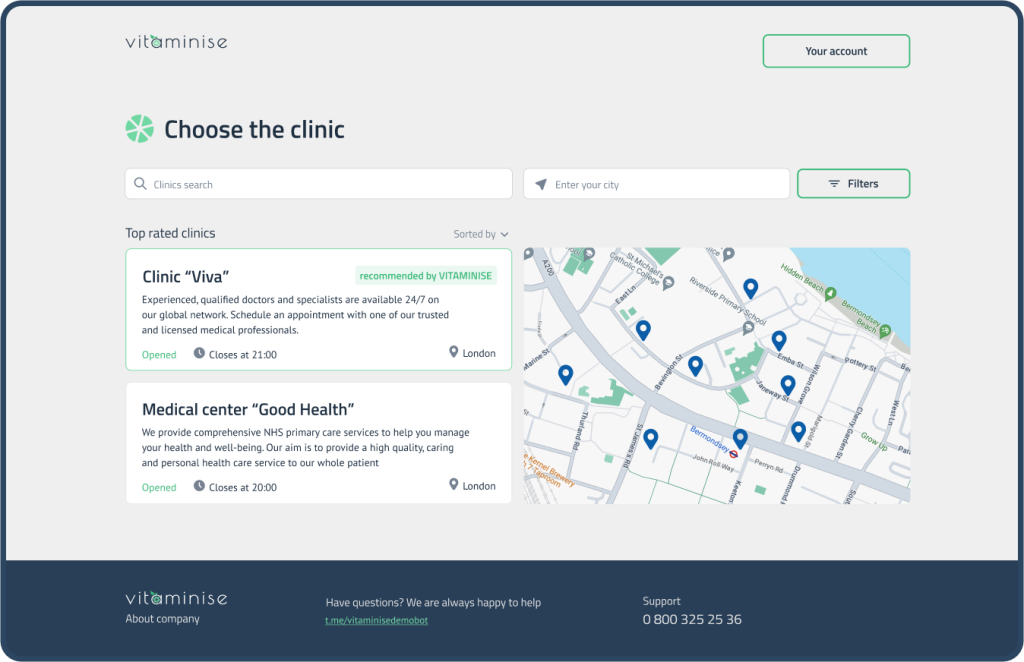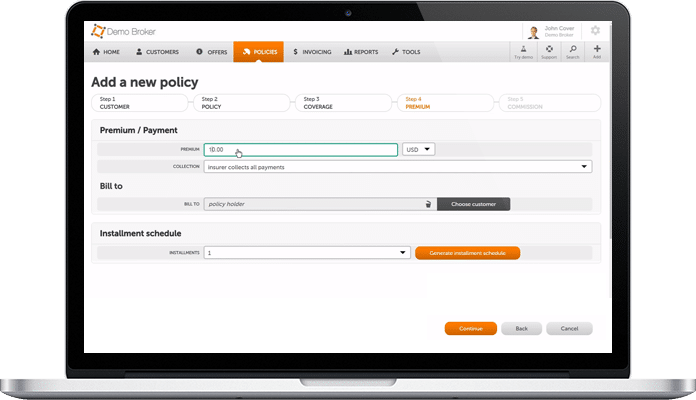Insurance workflow routines are extremely complex processes that involve dealing with tons of data and performing numerous calculations and validations. If carried out manually, these activities will take a lot of time and keep a considerable workforce busy. By leveraging insurance workflow automation software, companies in the domain will revolutionize their shop floor practices, cut down on operational expenditures, improve the productivity of personnel, and augment the level of customer service.
Use cases of insurance automation
The implementation of robotic process automation (RPA) enhanced by intelligent automation features and tools gives a powerful boost to the efficiency of any element of the business pipeline. Yet, automation software for insurance companies brings maximum value when employed to upgrade the following procedures.
Underwriting
Here, you can introduce automated processing of applications, segment customers based on their policy type, creditworthiness, claim history, or other factors, conduct risk assessments via analyzing customers’ previous insurance coverage, and more.
Claim management
Claims processing routine can be greatly advanced and accelerated via AI-powered validation of relevant documents, detection of fraudulent claims, calculation of payment sums and their instant disbursement, application of user-defined rules for claim rejection/approval, assignment of claim management tasks to personnel, etc.
Policy management
Insurance solutions will create customizable templates for all types of policies, update them if necessary, generate documents, and send them to clients via different channels.
Marketing
You will be able to hold sequential multi-channel campaigns that you can micro-target and tailor according to each client’s personal preferences and past history.
Customer support
Top-notch insurance agency automation software will let the clientele do a lot of things themselves, such as self-registering, updating personal information, filing claims, or paying for policies. Besides, they will receive automated notifications and communicate with virtual assistants to solve issues and get answers to standard questions.
Billing
Insurance software is highly instrumental in creating customer invoice templates in multiple languages and currencies, signing them with e-signature, supporting different payment methods, and real-time invoice status tracking.

Get a free consultation on your project!
Benefits of custom insurance automation software
When implemented by such a professional insurance automation software development company, solutions in this field usher in numerous benefits.
DICEUS insurance automation services
Having delivered numerous software automation projects, DICEUS provides custom insurance automation software development services along two lines.
About DICEUS
Our partners







Want to discuss your project?
What affects the success of insurance automation software
Our approach to creating best-in-the-class insurance automation solutions includes the following vital aspects.
- AI-fueled analytics. This module is crucial for processing customer and third-party data, conducting risk assessments, and obtaining actionable insights regarding future campaigns, client segmentation, pricing, and more.
- Employee training. No matter how weighty the boons of an automation product are, companies won’t unlock its full potential unless their personnel learn to handle software properly.
- End-to-end automation. Organizations can get the maximum value from automation only if it covers all workflows across the entire insurance lifecycle and eliminates manual processes wherever possible.
- Focus on CX. The end-users’ satisfaction is the ultimate purpose of building insurance automation solutions. That is why we do our best to create user-friendly interfaces and straightforward customer journeys that will let both clients and insurers make the best of the software they utilize.
Factors affecting the cost of insurance automation projects
While embarking on software automation initiatives, insurance companies want to understand the sum they will have to allocate for it. We can announce the project cost after we learn the following information.
- Project complexity and scope
- The urgency of project completion
- The tech stack the project requires
- Engagement model you opt for (Dedicated Team or Time & Material)
- The cost of the RPA license
- Integration needs
How to understand that you need to consider automation
While harnessing automation software is an ultimate efficiency booster for any digitally-fueled organization, automation for insurance companies is mission-critical if they:
- Start their work and want to make an automation solution the core of their future business ecosystem
- Have complex insurance operations as a part of their workflow
- Need seamless integration of novel tools with their legacy ecosystem
- Aim at enhancing data security
- Are to comply with numerous industry-specific local regulations
- Plan to leverage smart contracts in their routine
Our achievements
Client reviews
Our case studies
FAQ
What is insurance automation software development?
It is a combination of IT services aimed at creating and implementing automation technologies into pipeline insurance activities. Typically, automation tools are utilized to streamline and facilitate claim and policy management, underwriting, billing, customer support, BI analytics, and more.
How can automated systems benefit the insurance industry?
By embracing automation on a wide scale, insurance companies can reduce the amount of manual labor, minimize human-driven errors, improve risk management, keep abreast of changes in compliance regulations, increase the efficiency of their shop floor activities, and boost the level of customer service.
What distinguishes insurtech automation from traditional processes?
Automated workflows allow companies to switch to a more effective pipeline routine, where claim handling, policy management, underwriting, billing, and other operations are conducted faster. Besides, the lion’s share of customer-facing activities can be performed by clients themselves through various self-service capabilities.
How do efficiency software solutions benefit insurers?
Thanks to them, insurers can create customizable templates for various kinds of policies, validate incoming documents, quickly process applications and claims, calculate payments, detect fraud, and more. For managers, the assignment of claim management tasks, depending on the personnel qualification, location, experience, etc., becomes a cakewalk.
How can technology improve claims automation in insurance?
AI-driven insurance products are highly instrumental across all elements of the claim processing pipeline – from the validation of claim-supporting documents, damage estimation, and claims triage to calculating the due amount to be paid, communicating claim-related decisions to the client via multiple channels, and disbursing of the coverage to the customer.











